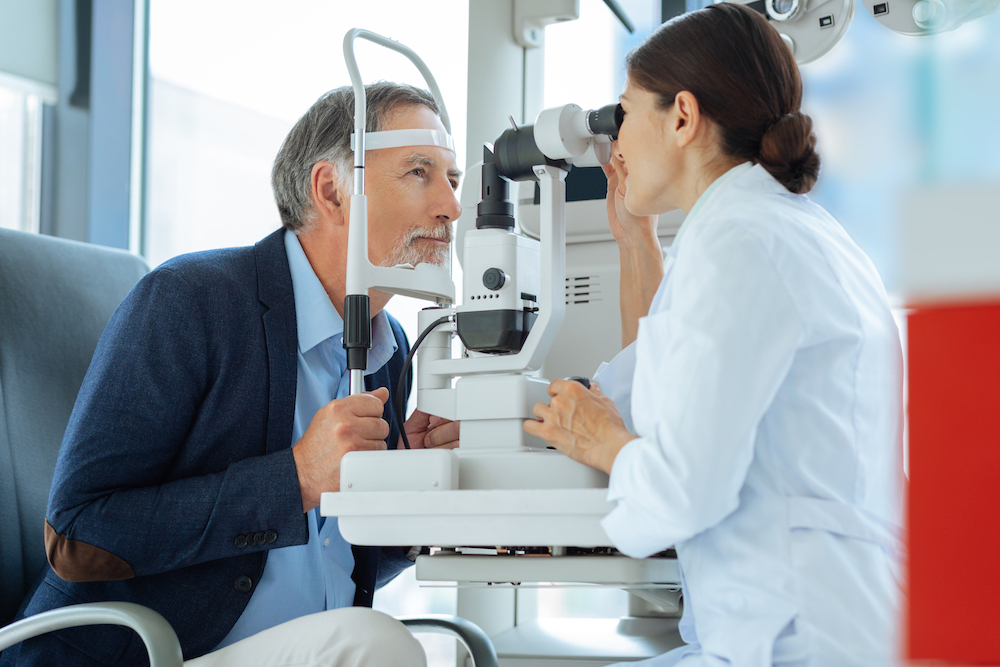
Eye examinations should be part of regular healthcare to ensure optimal vision, early diagnosis, and appropriate treatment of issues that arise. Making this evermore critical is the fact that many eye diseases and conditions are painless and reduce vision gradually, often making it difficult to detect individually. Vision loss can severely impact an individual’s quality of life.
Healthy adults between the ages of 18 and 40 with no symptoms of vision problems or family history of eye disease or blindness should be examined every two to three years. After the age of 40, every two years is recommended. Adults over 60, or if contact lenses are worn, should be receiving annual eye examinations.
Adults at risk for eye disease due to family history, diabetes, high blood pressure, or other medical conditions that can affect visual health, should be seen annually or as recommended by their optometrist.
Children should have their vision and ocular health assessed between the ages of 6 and 12 months and then examined prior to entering kindergarten. Based on eye examination results an appropriate schedule will be recommended, typically consisting of annual eye examinations through adolescence. It is important to have children’s eyes examined prior to the age of 9 to rule out a potential for amblyopia, which can lead to functional blindness if not diagnosed and treated appropriately. Often, vision screenings at school and the pediatrician’s office offer a false sense of security by primarily evaluating distance acuity.
What Does a Comprehensive Eye Exam Involve?
A comprehensive eye exam will involve different types of eye tests. A thorough exam involves a review of the patient’s medical and ocular history, tests for color blindness and ability to see depth, and evaluations of visual field and refractive status. Ocular alignment and movement are also evaluated as part of a comprehensive eye examination. Examination of ocular health for evidence of conditions that can impact vision is part of a thorough eye exam.
After an eye exam, your optometrist will use the results to discuss your ocular health and talk to you about your risk of developing eye disease. You can also learn about preventive measures to keep your eyes healthy and protect your eyesight.
To learn more about your risk for vision loss, contact Williamsburg Eye Care at our office in Williamsburg, Virginia. You can call us at (757) 564-1907 to book an appointment today.






